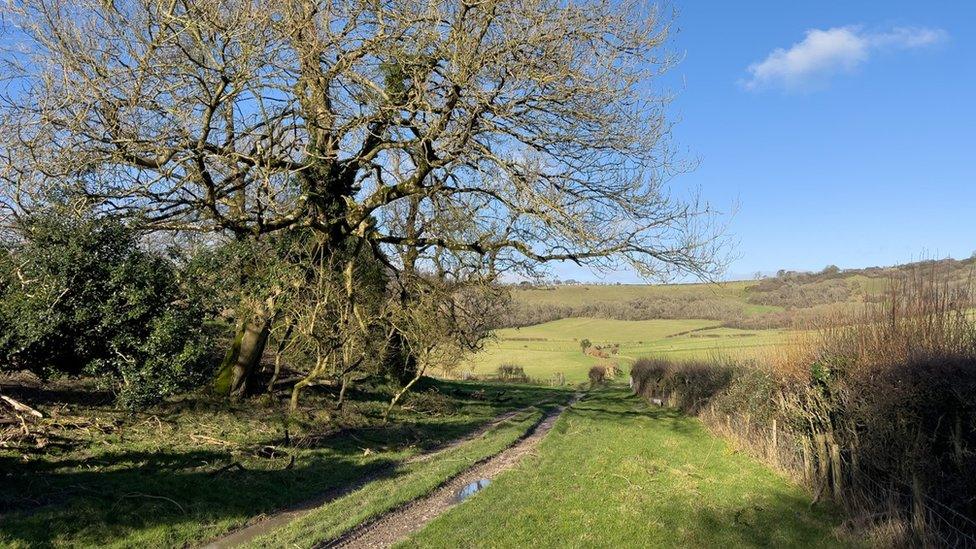Konik ponies introduced to enhance nature habitats
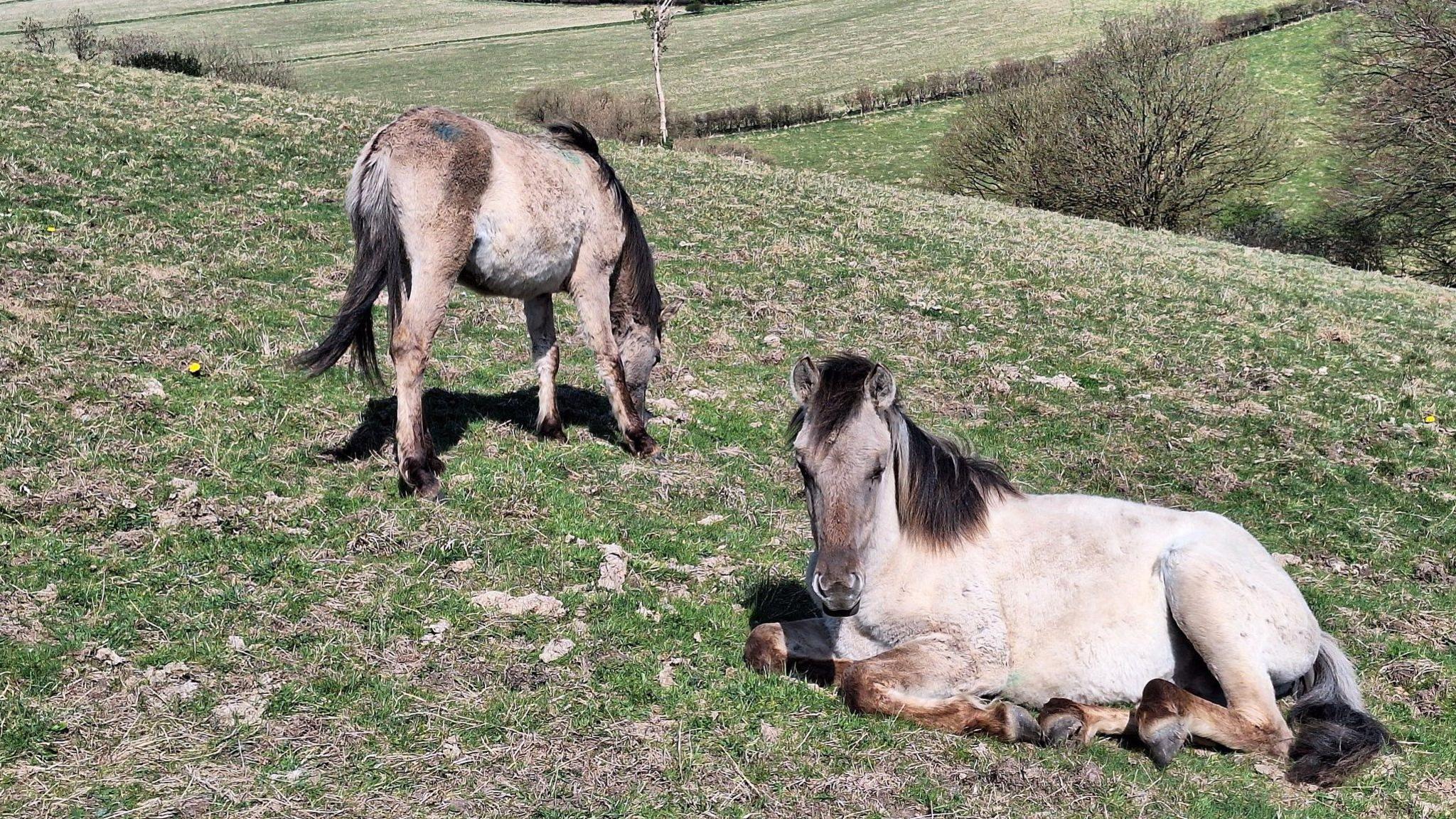
Koniks closely resemble the now-extinct wild horse, the tarpan
- Published
Three konik ponies have been introduced to a wildlife reserve to help enhance habitats for other species.
The animals have been released at Lyscombe Nature Reserve, near Piddletrenthide, by Dorset Wildlife Trust.
Koniks closely resemble the now-extinct wild horse, the tarpan, which the trust said made them ideal for conservation grazing and rewilding.
They will join the longhorn cattle already on the site, but their distinct grazing habits will affect the habitat in different ways.
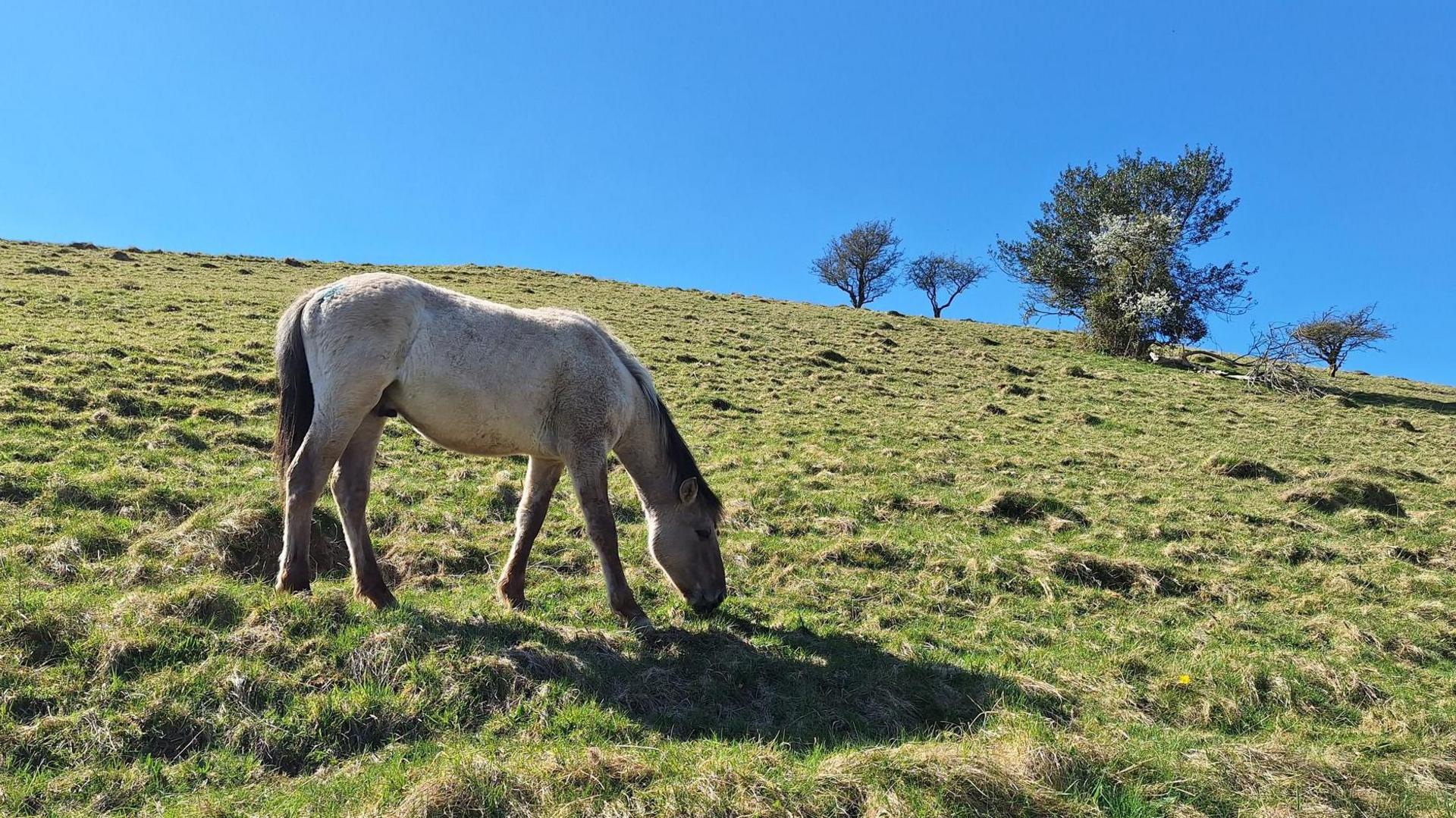
The ponies will eventually be able to roam across the entire reserve
In an update on Facebook, external, the trust said the ponies were "settling in well", adding: "For now, they're being kept in a smaller area while they bond with each other and adjust to their new surroundings.
"They'll then be allowed to explore the newly fenced areas around Lyscombe Bottom, and eventually will be able to roam across the entire reserve.
"It's not just how they eat that makes them great for conservation, their natural behaviours — including trampling, dust bathing and dunging — help create complexity in the landscape and open up more opportunities for wildlife to thrive."
Dorset Wildlife Trust and Natural England bought 335 hectares at Lyscombe in March 2024, including a 50-hectare Site of Special Scientific Interest (SSSI), a Site of Nature Conservation Interest (SNCI), and several Scheduled Monuments.
The trust is using natural regeneration techniques and a rewilding approach along with traditional conservation management to enhance and restore the habitats.
Get in touch
Do you have a story BBC Dorset should cover?
You can follow BBC Dorset on Facebook, external, X (Twitter), external, or Instagram, external.
Related topics
- Published6 January
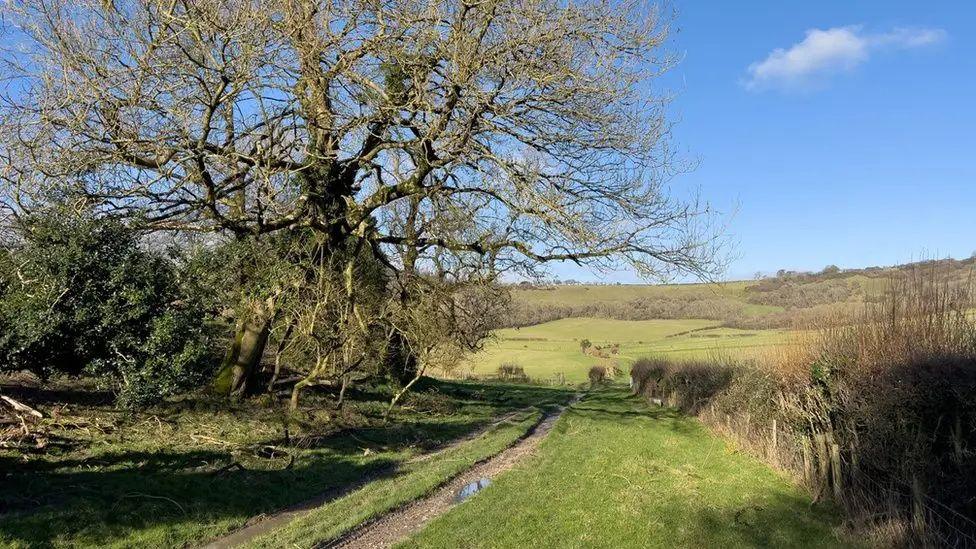
- Published10 May 2024
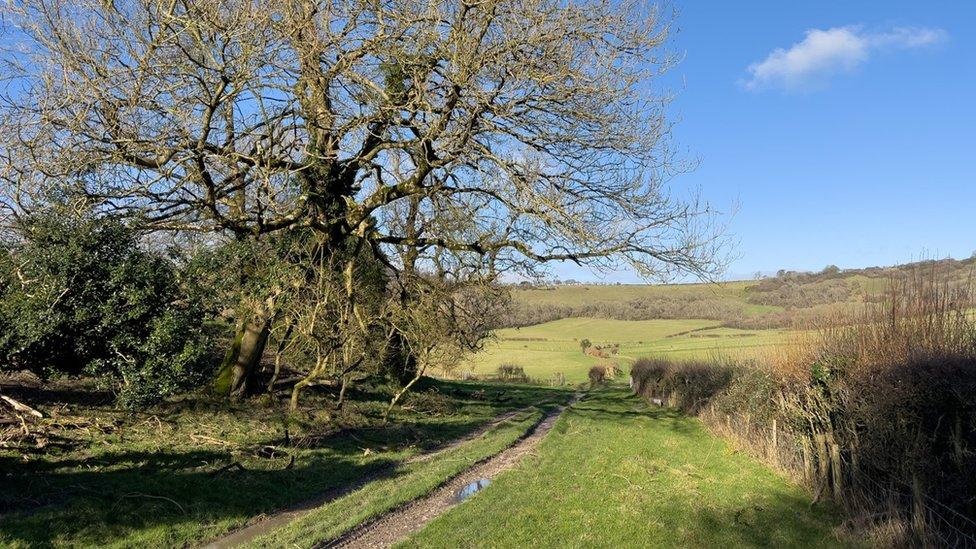
- Published9 March 2024
